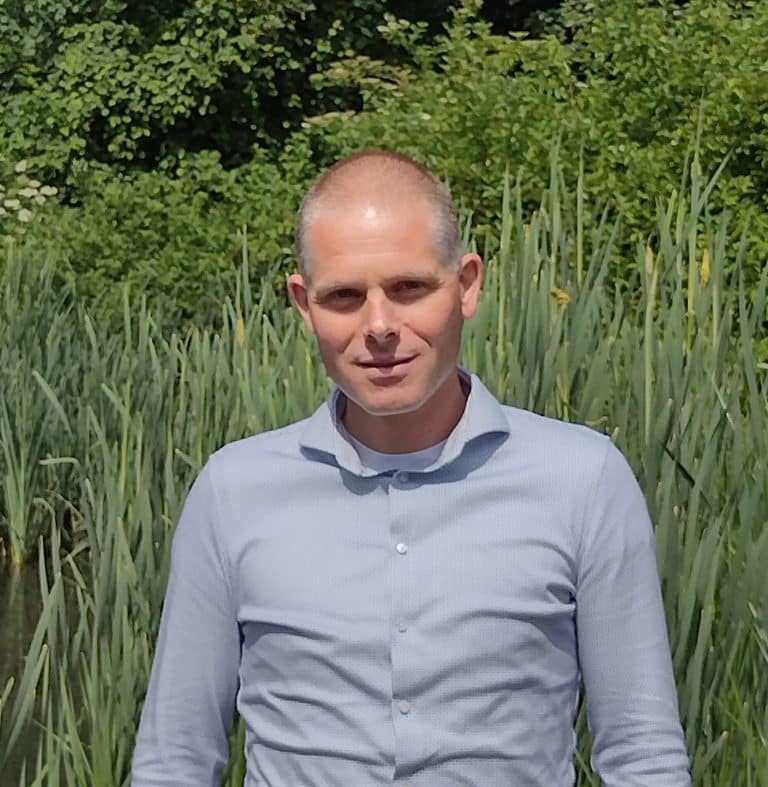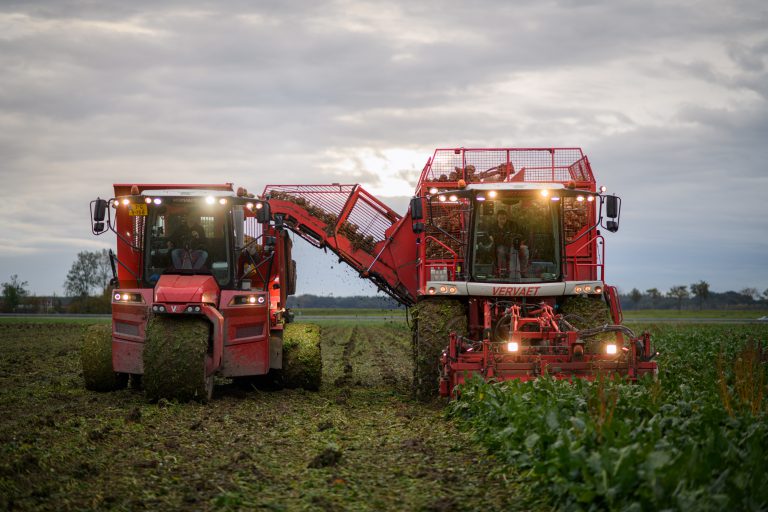Indirect emissions
Bertram: “Scope 3 includes all emissions in our value chains that are involved with our raw materials, services and products, but which we do not directly emit or cause ourselves during the process. For example, cultivation or transportation of our crops, the use of packaging materials and even the commuting journeys made by our colleagues.” Scope 3 also comes into play at the end of the supply chain – with the consumer, Gerwin adds: “This is also an area where we can make progress. For example, by developing products that require less energy when being used. Cooking potatoes in an air fryer is more efficient and results in lower emissions than baking them in an oven. This is how you can make an impact from the beginning to the end of the supply chain.”
Different disciplines
“This is also where the challenge lies,” Bertram points out. “Addressing Scope 1 and 2 is relatively simple because it has to do with your own operation. You can identify emissions within a plant, where improvements can be made, and base choices on the findings to reduce CO2. And the production managers are responsible for implementing the measures.” For scope 3, the picture is very different: “You have to deal with a lot more different disciplines under scope 3: cultivation, product development, HR, logistics, purchasing and so on. On top of that, we work with five different business groups (BGs). Trying to come up with a structure for all of this, even if it’s just for data collection, will take a while.”
It starts with insight
Since scope 3 was added to the SCO2RE+ programme in August 2022, a lot of hard work has gone into creating that structure within Cosun and the various BGs. Bertram: “A new sustainability manager has been hired per BG, who also serves as a point of contact for the scope 3 programme. A consultation structure has been set up, in which we periodically discuss the progress of data collection, but also how to standardise as much as possible.” Now, a year into the programme, the goal is to identify scope 3 emissions at a BG and Cosun level by the end of 2023. “It all starts with insight. Data provides us with a reference point from which to set goals for scope 3 reduction. We can then move on to taking action.”
Important focus
The focus on scope 3 is certainly important. Bertram: “This doesn’t mean that scope 1 & 2 are less urgent. With new pending EU regulations, as an organisation, you’re actually already compelled to contribute to reducing scope 3 emissions.” He cites examples such as mandatory recycling, requirements for low or lower emission engines in logistics and, on the cultivation side, the Farm to Fork strategy, with tools for carbon capture, and obligations to reduce the use of pesticides and fertilisers. “The entire European climate and environmental policy contributes to reducing scope 3 emissions.” Despite the complexity, it is important to maintain focus. Gerwin: “We estimate that scope 3 could represent two-thirds of our total carbon footprint. That’s quite a substantial part.”
Joining forces
Thanks to the commitment of the entire organisation, Bertram predicts that they will be able to join forces to realise the goals: “For example, the different BGs all deal with lots of transport movements of potato, beet and chicory crops. You can make joint arrangements with transport companies regarding the use of low-emission or even climate-neutral trucks.” Aizo sees additional benefits to the joint use of data and insights: “More data can help make your logistics processes more efficient, for example. If you have common sources of scope 3 emissions, you can adopt a standardised approach to addressing and managing them.”
Thinking out-of-the-box
In addition to having a clear approach and structure, you also need transparent communication in order to achieve this within the organisation. Bertram: “There are only a few people who know scope 3, what it entails and what is involved in identifying and reducing emissions. Because emissions occur throughout the supply chain, you have to involve the entire supply chain. This includes the growers.” “This is also where the strength of a scope 3 approach lies,” Aizo adds. “To address emissions, you need to change your perspective on business operations. You have to think out-of-the-box. It’s almost a case of a systemic change, in which we approach our growth and ambitions with a positive outlook towards the future.”
Cosun’s vigour
Bertram predicts that the growers of potato, beet and chicory crops will play an undisputable role: “The common denominator for our BGs is the grower. The impact will vary per crop, but it’s clear that the impact on the supply chain is significant. It will take a new way of cultivation to meet our common goals.” It is obvious that the grower needs to be supported. Gerwin explains: “Together, we’re seeing more and more opportunities. Aviko is focusing on this with Cosun, through the Cosun Growth Power programme. We’re testing new techniques on the inspiration farm of one of our growers. Here, other farmers can also learn and get inspired. That’s where the synergy between the different crops lies.”


